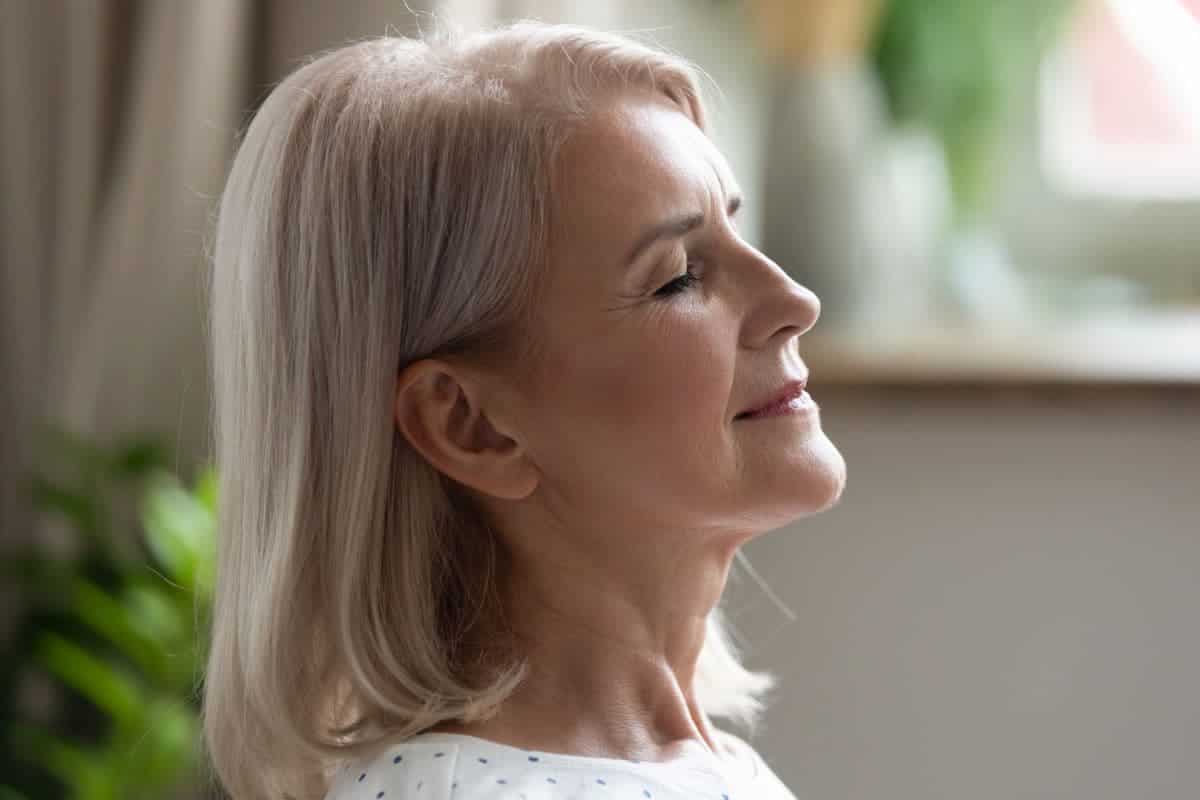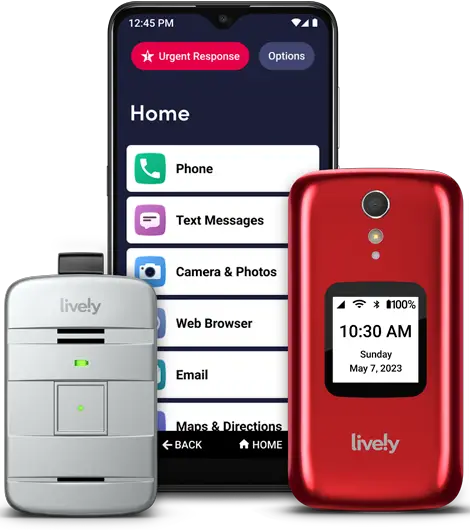This post contains affiliate links.
People and their bodies undergo a lot of changes as they age. They become weaker, as reflected in nearly every part of them, including their eyes. This means an elderly person may close their eyes more often than before.
Elderly people sometimes keep their eyes closed because of aging and specific health conditions, like dementia. Aging causes eye and eyelid muscles to weaken. Certain conditions may also make them more sensitive to light and glare, so they’d rather keep their eyes shut.
Seniors are susceptible to many conditions, especially those affecting the eyes. Understanding why they keep their eyes closed will help you provide better care for them.
How Does Aging Affect Eyes?
As people pass their prime, they lose the ability to do many things, like keep their eyes open for long periods. This is considered a normal part of aging since, like other body parts, the eyes and eyelids may weaken over time.
Decreased Tear Production Leads to Dry Eyes
As you age, tear production often decreases over time, leading to dry eyes.
The lack of moisture in their eyes can irritate the elderly, and closing them may provide some relief. Indeed, this happened to Lorra Garrick’s father, and the dryness worsened when he didn’t use artificial tears.
Weakened Muscles Make It Harder To Keep Eyes Open
Besides decreased tear production, the eye and its parts lose flexibility.
For instance, the muscles of the eyelids weaken. Thus, they tend to droop, making it harder to keep them wide open. Both lower and upper eyelids can sag over time.
Besides the eyelids, the muscles that control the pupils also deteriorate, making them more sensitive to light or glare. This means it may be harder for an elderly person to adjust to changing light conditions, especially in places where the lights are bright, such as in a hospital. To combat this, they may close their eyes more often.
Patients With Late-Stage Dementia Often Keep Their Eyes Closed
Many patients suffering from dementia are also observed to keep their eyes shut for longer periods. One such patient was Katherine Heiney’s mother during the later stages of dementia.
One reason for dementia patients closing their eyes may be lethargy. They are often too weak to even stay awake and may even prefer to sleep for a long time. It’s also possible that elderly people suffering from dementia become more sensitive to light and glare.
Patients who often keep their eyes shut, along with a lack of response and withdrawal from the world, are typically in the fourth stage of dementia. This is the last psychological stage. Although they appear blank, they can still hear and feel.
Eye Conditions That Cause the Elderly to Close Their Eyes
Many eye conditions affect the elderly. They may not affect all seniors, but they are more prevalent in the elderly population.
If your loved one keeps their eyes closed longer than usual (or has other symptoms that involve the eyes), bring them to an eye doctor as it may be a sign of one of these conditions:
- Cataracts. Cloudy areas around the lens, called cataracts, often lead to blurred vision and sensitivity to light and glare. They can be large and present in both eyes. It affects more than half of the senior population (aged 75 and above) but can be treated through surgery.
- Glaucoma. Damage to the optic nerve and fluid pressure may cause glaucoma. This leads to loss of peripheral vision and sensitivity to light and glare. In the worst-case scenario, the affected elderly will experience total blindness.
- Dry eyes. As I’ve mentioned above, this condition is caused by the reduced production of tears.
Other Eye Conditions Prevalent in the Elderly
Other severe eye conditions may not necessarily cause the elderly to keep their eyes closed. However, they are prevalent, and you should keep an eye out for them.
These eye conditions include:
- Age-related macular degeneration (AMD). This disease affects the retina and leads to loss of central vision. It also affects how people see fine details and colors. In the US, it is a prominent cause of blindness in seniors.
- Diabetic retinopathy. Seniors with diabetes are at risk of developing this condition. It is caused by damage to nerves that support the retina and may lead to total loss of vision.
- Retinal detachment. The retina can be torn away or separated because of fluid build-up in the back of the eye.
- Low vision. Your beloved senior has a condition called “low vision” when even eyeglasses, contact lenses, and other instruments and treatments cannot improve their eyesight. It is rare but possible.
Tools That Can Help the Elderly With Eye Conditions
Although some eye conditions are inevitable for seniors, they can be alleviated through the help of tools and instruments. If your loved one is closing their eyes a lot, these can help them to better adjust to bright light.
While many challenges accompany aging, it’s important to remember that there are numerous solutions available to support the quality of life for our seniors. One such solution is Lively, a company offering services such as 24/7 urgent response for emergencies, fall detection, access to nurses and doctors from the comfort of home, and even fun brain games to improve memory and focus. For those supporting seniors with their healthcare, their ‘Lively Link’ feature keeps you updated on your loved one’s health and safety, and ‘Care Advocates’ provide personalized care plans to assist in managing the health journey. They also offer personal operator assistance round the clock and affordable, easier car rides with ‘Lively Rides.’ Explore their services at www.Lively.com to discover how they can contribute to enhancing care for the elderly.
Before using any of these, I recommend seeing an eye doctor first. They can offer the best advice on your beloved senior’s needs.
Protective Eyewear
Protective eyewear shields the eyes from external elements and prevents visual loss. They are also durable enough to effectively protect the eyes in any activity. Examples include:
- Safety glasses
- Safety goggles
- Safety shields
- Eye guards
- Sunglasses
You can consult your senior’s eye doctor on what kind is best for them. Once determined, you can check out these Amazon.com recommendations I have:
- Duduma Polarized Sports Sunglasses (available on Amazon.com). These sunglasses are designed especially for sports and are durable and flexible. The lenses are multi-layered with UV400, anti-reflective, shatterproof, and scratch-resistant coatings.
- MAGID ANSI Anti-Fog Safety Glasses (available on Amazon.com). These safety glasses come with side shields, a cloth case, and clear lenses. They are also scratch-resistant, and the frame is designed to be comfortable.
Eye Drops
For the elderly with dry eyes, doctors may recommend specific eye drops. However, here are some popular ones on Amazon.com:
- TheraTears Dry Eye Drops (available on Amazon.com). For immediate relief of dry eye symptoms, these eye drops are well-recommended. They soothe the eyes by correcting the salt imbalance that causes dryness and discomfort.
- Bausch & Lomb Eye Drops (available on Amazon.com). The Soothe XP eye drops from Bausch & Lomb work against dry eye symptoms. This preservative-free solution uses mineral oils to restore, seal, and protect the lipid layer from breakdown.
Sometimes, it may seem like your elderly parent is sleeping with open eyes. Check out my guide to learn more about the reasons and how to treat it. Why Do the Elderly Sometimes Sleep With Their Eyes Open?
Final Thoughts
When the elderly close their eyes occasionally, it’s most likely a natural part of the aging process. Their eye and eyelid muscles weaken as they age, making it harder to keep them open. However, more serious eye conditions, like cataracts, could also be the cause. Thus, regularly take them to an eye doctor for the best care and advice.
Tenuto Properties LLC dba Growing Gray USA is a participant in the Amazon Services LLC Associates Program, an affiliate advertising program designed to provide a means for sites to earn advertising fees by advertising and linking to Amazon.com. We also participate in other affiliate programs which compensate us for referring traffic.




